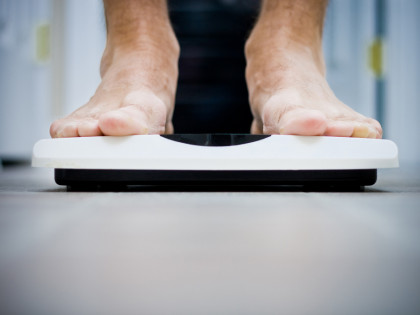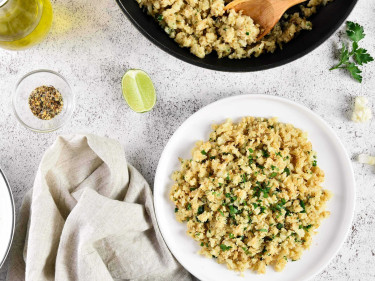Dietary variety is determined by the number of different nutrient-dense, core foods that a person usually eats on a weekly basis. The nutrient-dense foods are those that are included in the core foods groups in the Australian Guide to Healthy Eating. They include vegetables, fruit, wholegrains, dairy (and alternatives), and lean sources of protein (as well as alternative sources of vegetarian protein).
Different foods contain different nutrients, and so eating a wider variety of foods from the these core food groups increases the likelihood of achieving recommended intakes of fibre, vitamins (B, C and folate), minerals (iron, zinc, calcium) and phytonutrients needed for health and usual body functions, including metabolism, growth, repair and fighting disease.
What does the evidence say?
Research shows that higher food variety scores are associated with a range of health benefits, especially as you age. This includes less weight gain, and greater success with weight loss, lower risk of developing chronic conditions like metabolic syndrome, type 2 diabetes, and heart disease, as well as having a longer life expectancy.
Ways to improve your diet variety:
- Include meals that are based on different fresh, canned and frozen vegetables, fruit, legumes and wholegrains
- Every week buy one or two fruits or vegetables that you didn’t buy the week before
- Try a different lean protein source a couple of times per week
- Prepare a meat free meal at least once per week, more often if possible, or use less meat and bulk out recipes by adding some vegetarian alternatives into dishes, such as tofu or legumes
- Buy mixed salad leaves, frozen mixed veggies and berries, 4 bean mix and mixed (unsalted) nuts rather than a single type
- Try a new recipe each week
- Include different types of dairy foods, such as yogurt as a snack, milk with cereal or in a smoothie, or sprinkle some low-fat cheese on a pasta dish
How does your dietary variety score stack up?
The Healthy Eating Quiz is a validated tool that measures dietary variety, and has been used by over 600,000 people.
Take the quiz, create a profile to save your results, and you will be sent personalised advice on how to improve your score!













